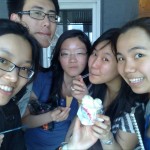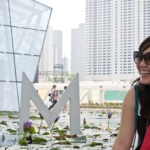Check the original version on Meld Magazine here.
NEWS flash: 15 years of education hasn’t really prepared you to face the world. No, now you need 20.
Most of us have gone through six happy years of primary school, the place where we first made friends, bruised our knees and broke some rules. Then we had six exciting years of high school, the place where we first made enemies, got attracted to the opposite sex and started our first serious learning.
And then most of us began university life.
But after moving half way across the world and enduring three years of sleepless nights combined with a dozen different part-time jobs, international students are nowhere closer to achieving their career dreams.
In an era where education matters, it’s as if work doesn’t matter. I have stopped counting the number of friends who are unable to get a job after graduation. In the end, they work part-time in yet another retail store, or worse, they end up going back to their home countries.
Not all international students invest $100,000 to come here, receive an education and make their way back home. We want experiences, we want to get a job and we want to put our skills on the table.
The most common rejection letter my friends have received includes the line, “Based on some factors critical for success in the job to which you applied (e.g. skills and experience) you were not the most competitive candidate … and the company’s policy is for their candidates to have permanent residency.”
A friend who graduated from a Master of Business Information Systems earlier this year said to me, “When I’m on holiday and want to apply for an internship, they ask for permanent residency. If I haven’t graduated yet, I can’t apply for permanent residency. Now when I’m applying for work they ask for experience. But no one wants to give me a job because I’ve got no experience. But how can I get any if no one will give me a chance?
“Companies ask for a minimum of three-year experiences in a related field for a graduate programmer position. I’ve even checked the websites twice to console my disbelief.”
Despite Melbourne’s recent nomination as the world’s most livable city, I still have my doubts. The Australian Bureau of Statistics shows unemployment rates have risen to 5.3 per cent. Almost 26,400 people have lost their jobs and The Age economists predict another 100,000 will lose their job by the end of the year.
If companies are letting go of their experienced workers, they’re not going to be hiring newbies.
So the ugly truth is, a bachelor degree only prepares most international students for yet another degree, at least, that’s what has happened to me.
A psychology student, I just learned that while we were sitting in lecture theatres for three years, swallowing theories like they were the Bible, first year students in New Zealand were visiting child care centres, putting those same theories into practice.
Is it the education system? Or is it just me?
So after weighing up the prospect of months and months of unemployment, international students like me will be considering an alternative – a Master’s degree or PhD. Another three to four years of education which doesn’t guarantee us a place in the workforce anyway.
And now for the second ugly truth. There’s no guarantee we will get into a Master’s or PhD program either.
In order to do Master’s in psychology, you need to get an honours degree. Roughly 10 per cent of the students who enroll in honours get in. So out of the 700 odd students studying psychology, only 70 of them will be accepted into honours.
And how many of these 70 students will eventually get into Master’s? 20. I’m betting they will have to be H1 students.
Am I being overly pessimistic?
Undergraduate international students not only need to strive for the prize called H1, they still have to worry about their future, doing part-time jobs and applying for internships.
Do we stand defeated in an ailing economy, walking past retail stores with ‘closing down sale’ signs on their doors?
I just hope this is still university and not a pressure cooker.










